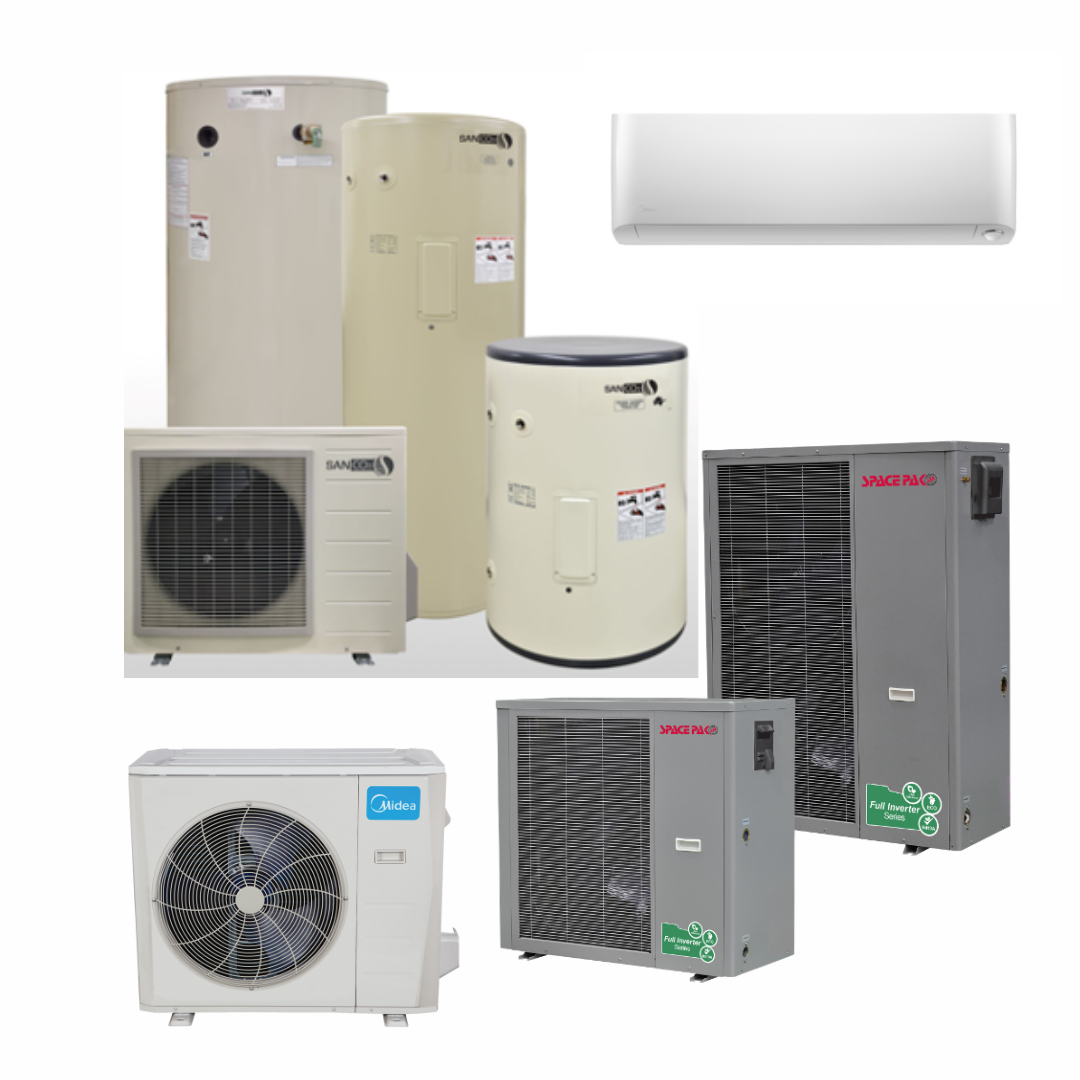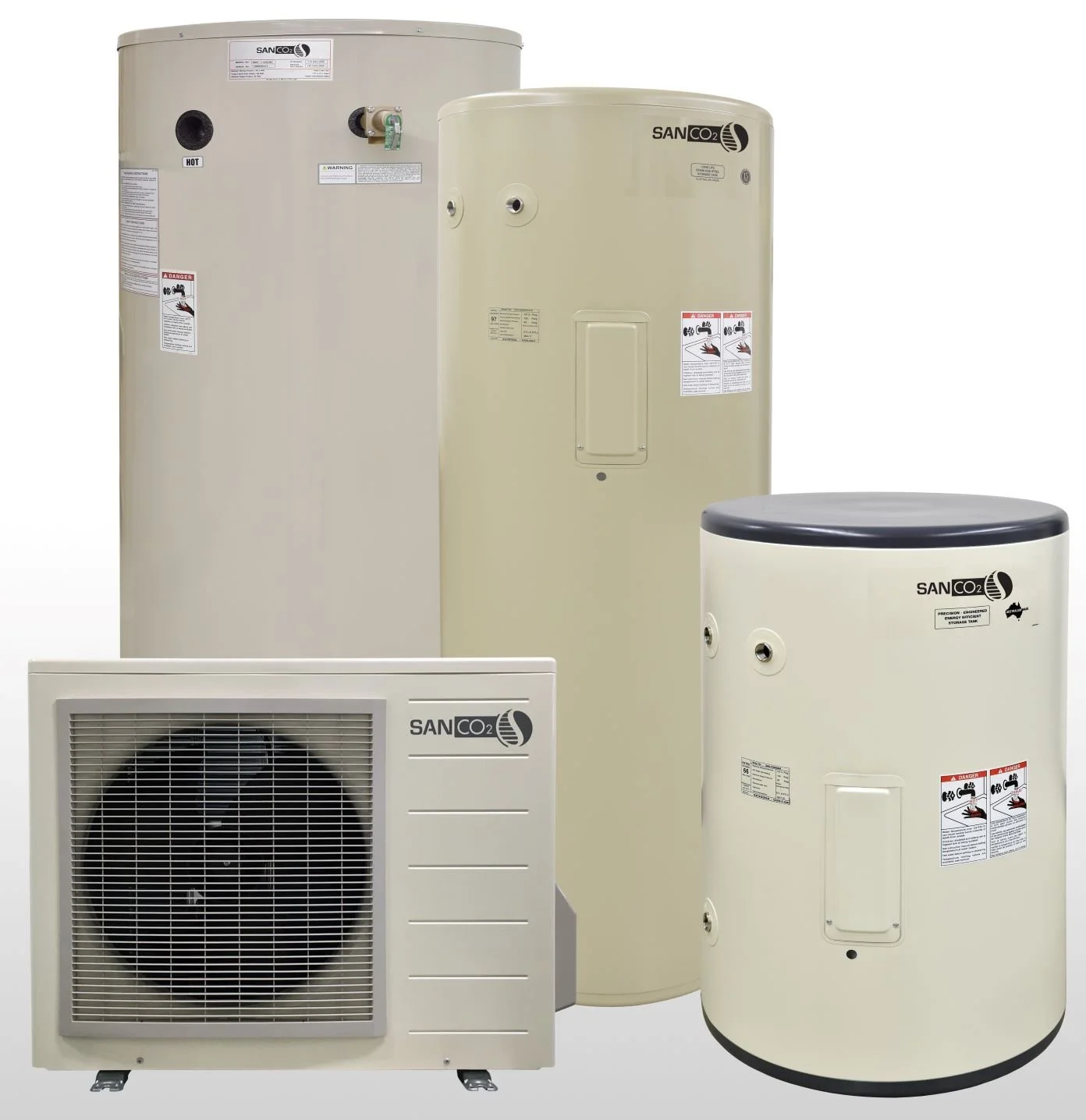BC Code and Beyond: Why Heat Pumps Are Valuable for Builders
/Heat Pumps Target the Largest Uses of Energy in Homes
HEAT pumps can be used to economically heat and cool interior spaces as well as to provide hot water
Space heating and water heating account for 82% of conventional housing energy use and 46% of net zero energy-ready housing energy consumption. There’s vast potential to improve heating and cooling strategies to be more energy efficient and less fossil fuel reliant. Heat pumps serve both space heating and cooling, and they can be used for domestic water heating as well. As heat pumps don’t generate heat but instead, they move heat from one place to another. That is why heat pumps are so energy efficient, resulting in lower energy bills. It’s also why many building departments are encouraging their use in new builds and renovations.
Beyond the Numbers: Additional Reasons Why Heat Pumps
The BC Building Code is a provincial regulation on new construction, building alterations, repairs, and demolitions. This code regulates minimum requirements for safety, health, accessibility, fire and structural protection of buildings, and energy and water efficiency. Apart from the financial propulsion of tax exemption and incentives on heat pumps, it’s prudent to discuss how builders can use heat pumps from Small Planet Supply to meet the BC code in terms of health, safety, energy efficiency, and emission.
Reduced Emissions are Healthier for Occupants
In considering health and indoor air quality, a smoke/fire damper is required in accordance with CAN/ULC-S112.1 and Clause 6.3.2.7. According to Clause 6.3.3, the products of combustion from oil-, gas- and solid-fuel-burning appliances shall be vented, and the chimney and ventilation equipment are designed and installed according to Clause 6.3.3. Builders would eliminate these workloads by applying Small Planet Supply’s heat pumps, as the heat pumps are powered by electricity and do not produce any emissions.
Heat Pumps and Safety
No doubt, safety is always a top priority and the most important issue when considering building code. As our heat pump series are not powered by flammable fuel and do not produce any exhaust gas, we do not need to have special attention to the dampers and ductwork stated in Clause 6.9.2, location of fuel-fired appliances in Clause 9.10.10.4, and the storage rooms in Clause of 9.10.10.6. Not only for builders and designers to save resources putting on the correlated design, but also allows them to have a better and more effective arrangement for space utilization. In addition to our SANCO₂ heat pump, CO2 refrigerant is non-flammable and non-toxic. It dramatically reduces the safety risk when there is any leakage.
Reducing Emissions Can Provide Additional Design Flexibility
Electrification of residential space heating using heat pumps is a potential strategy to reduce GHG emissions associated with natural gas combustion and fugitive methane emissions. It estimates that residential heat pumps reduce carbon dioxide emissions by 38-53% over a gas furnace (Pistochini et al., 2022). All our heat pumps eliminate at least 40% GHG emissions compared with gas furnaces, and some projects can even achieve a 90% reduction. Homeowners would benefit from an incentive program from CleanBC, $40-$60/tCO2e of lifetime GHG savings.
In some cities like Vancouver, further incentives are offered if the single-family and two-family projects fulfill the zero emissions standards. Like 16%-18% floor space ratio exclusion would be gained, a conditional height and front yard variance, and the flexibility in external design regulations and partial storeys, etc (City of Vancouver | New Incentives for Passive House, 2020). Undoubtedly, heat pumps help builders to have fewer restrictions on design and installations. Combining the incentives of energy efficiency and GHG emissions, not only financial rebates to the homeowners but builders would also be flexible with floor space ratio exclusion incentives. Small Planet Supply’s heat pumps and contractor’s networks are qualified to help the customer with BC heat pump rebate programs.
Heat Pumps and Energy Efficiency
The British Columbia government has committed to increasing energy-efficiency requirements in the BC Building Code and preparing for the net-zero energy ready of the building by 2032, which is in line with CleanBC goals. The BC Energy Step Code is a part of the BC Building Code in Part 10. According to Clause 10.2.3.3, buildings and major occupancies conforming to the requirements of any of Step 1 to 4 shall be designed and constructed to conform to applicable energy performance requirements in Tables 10.2.3.4.-A and 10.2.3.3.-J. These are the five aspects that would help builders with energy efficiency design; airtightness, insulations, thermal bridge, mechanical systems, windows and doors. With the characteristic of heat pumps – transferring heat, not producing heat, the raised energy efficiency helps the builders easily conform to the building code. The Natural Refrigerant (CO₂) used by the SANCO₂ allows it to make and store hotter water than any other heat pump water heater. This means more energy is stored in the tank, which means more hot water is delivered. At the same time, the SANCO₂ heat pump compressor capacity is about three times the capacity of other heat pump water heaters. In addition, SpacePak and Midea could also achieve SEER 16 or above.
Heat Pumps are Gaining Acceptance and Being Seen as Desirable by Consumers
Consumer awareness of heat pumps and how they can reduce energy costs is increasing. There is algo great appeal in having space conditionoing options that can heat and cool, especially in light of the recent heat waves we’ve experienced in the BC Province. Small Planet Supply carries SpacePak and Midea heat pump systems for space heating and cooling and SANCO2 heat pump water heaters for water heating.
If you’re a builder who curious about how you can incorporate heat pumps into your next project, you can stop by our warehouse or schedule a complimentary phone consultation with one of our team members.
Complimentary Heat Pump Consultations
Got questions about using heat pumps for your home or an upcoming project. Want help determining which heat pump system is the right system for your project? You can schedule a complimentary heat pump consultation with one of our team members.
Blog Post References:
City of Vancouver | New Incentives for Passive House. (2020, April 2). Architectural Institute of British Columbia.
Pistochini, T., Dichter, M., Chakraborty, S., Dichter, N., & Aboud, A. (2022). Greenhouse gas emission forecasts for electrification of space heating in residential homes in the US. Energy Policy, 163, 112813.












